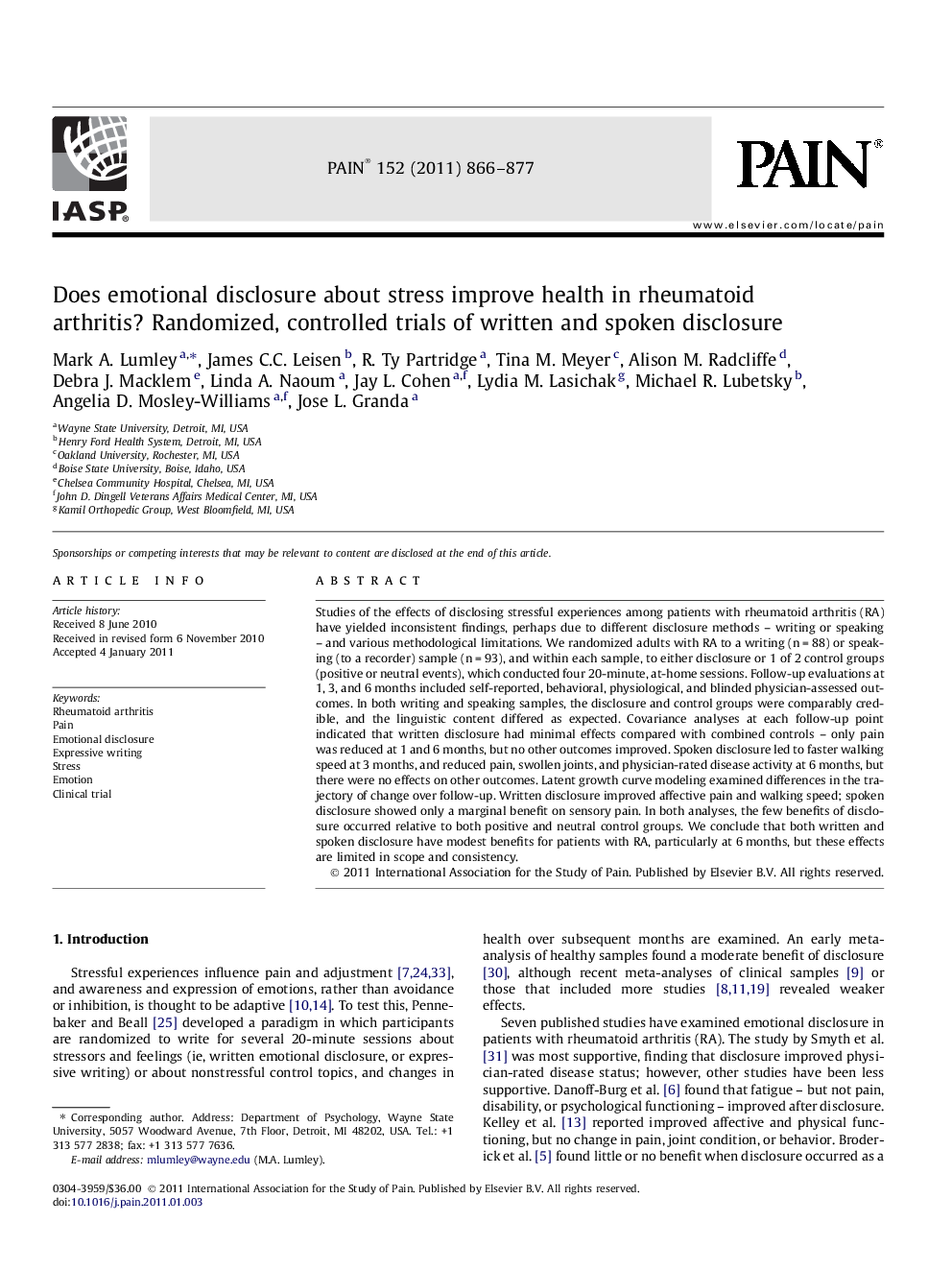ترجمه فارسی عنوان مقاله
آیا افشای هیجانی در مورد استرس، باعث بهبود سلامت در آرتریت روماتوئید می شود؟ کارآزمایی های تحت کنترل نوشتاری و گفتاری
عنوان انگلیسی
Does emotional disclosure about stress improve health in rheumatoid arthritis? Randomized, controlled trials of written and spoken disclosure
| کد مقاله | سال انتشار | تعداد صفحات مقاله انگلیسی |
|---|---|---|
| 74775 | 2011 | 12 صفحه PDF |
منبع

Publisher : Elsevier - Science Direct (الزویر - ساینس دایرکت)
Journal : PAIN®, Volume 152, Issue 4, April 2011, Pages 866–877
ترجمه کلمات کلیدی
آرتریت روماتوئید، درد، افشای هیجانی؛ بیانی رسا؛ فشار؛ هیجانی؛ کارازمایی بالینی
کلمات کلیدی انگلیسی
Rheumatoid arthritis; Pain; Emotional disclosure; Expressive writing; Stress; Emotion; Clinical trial

